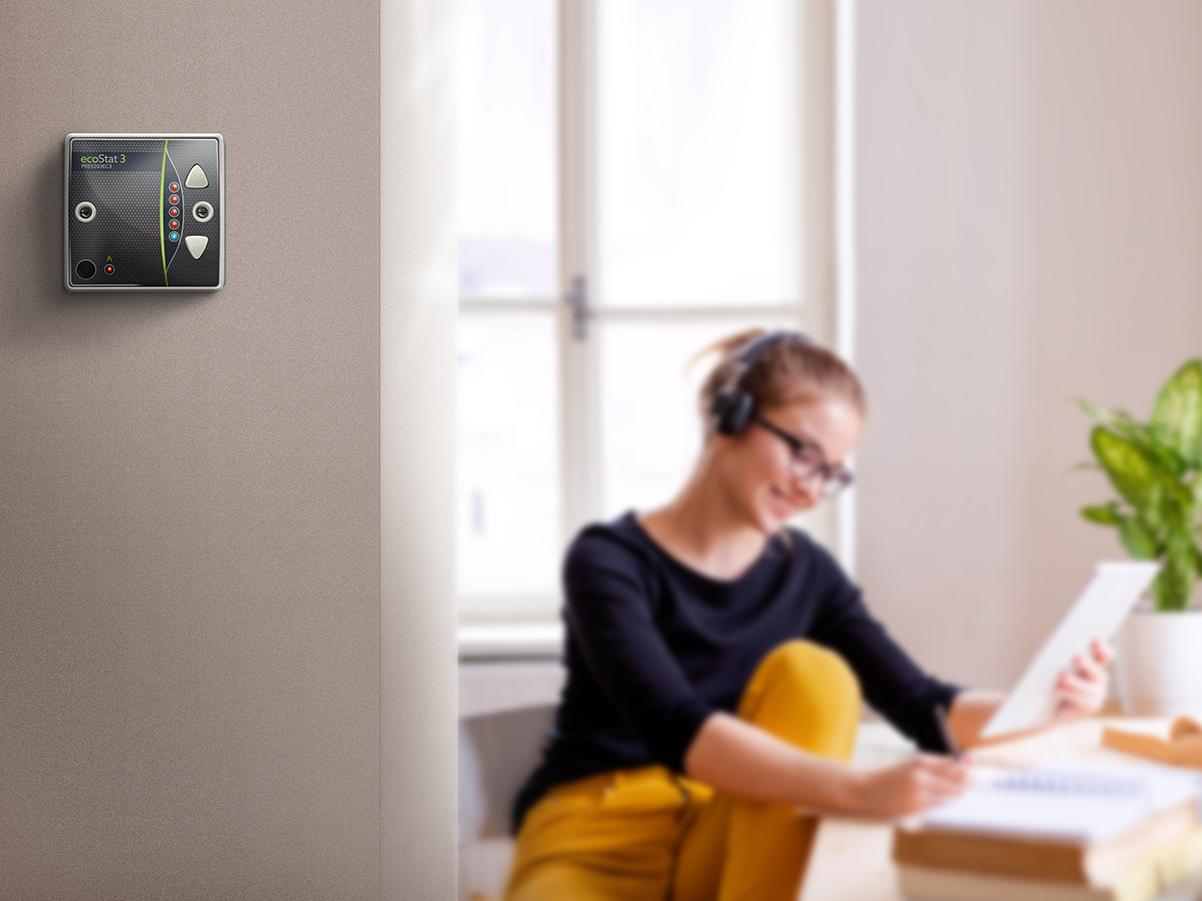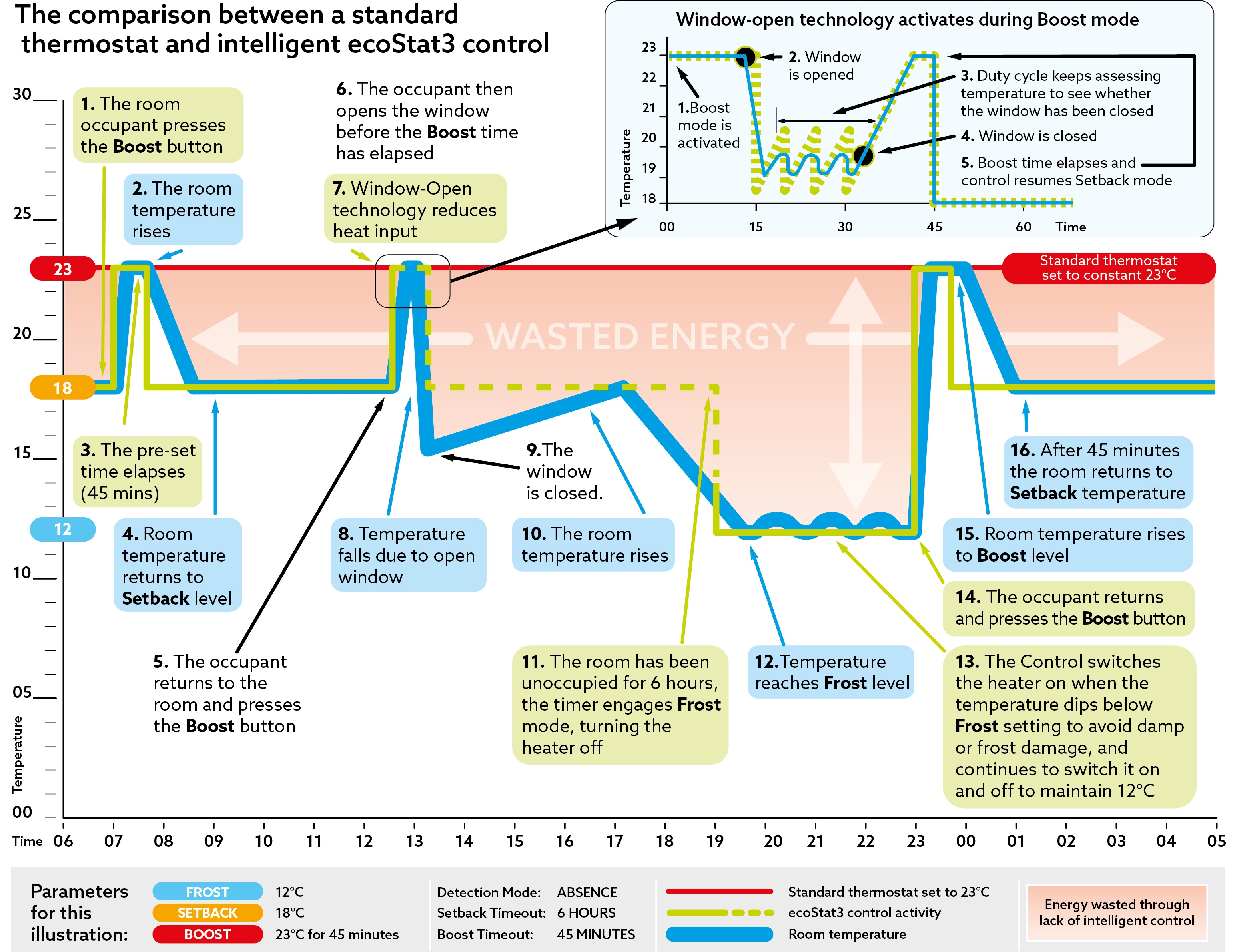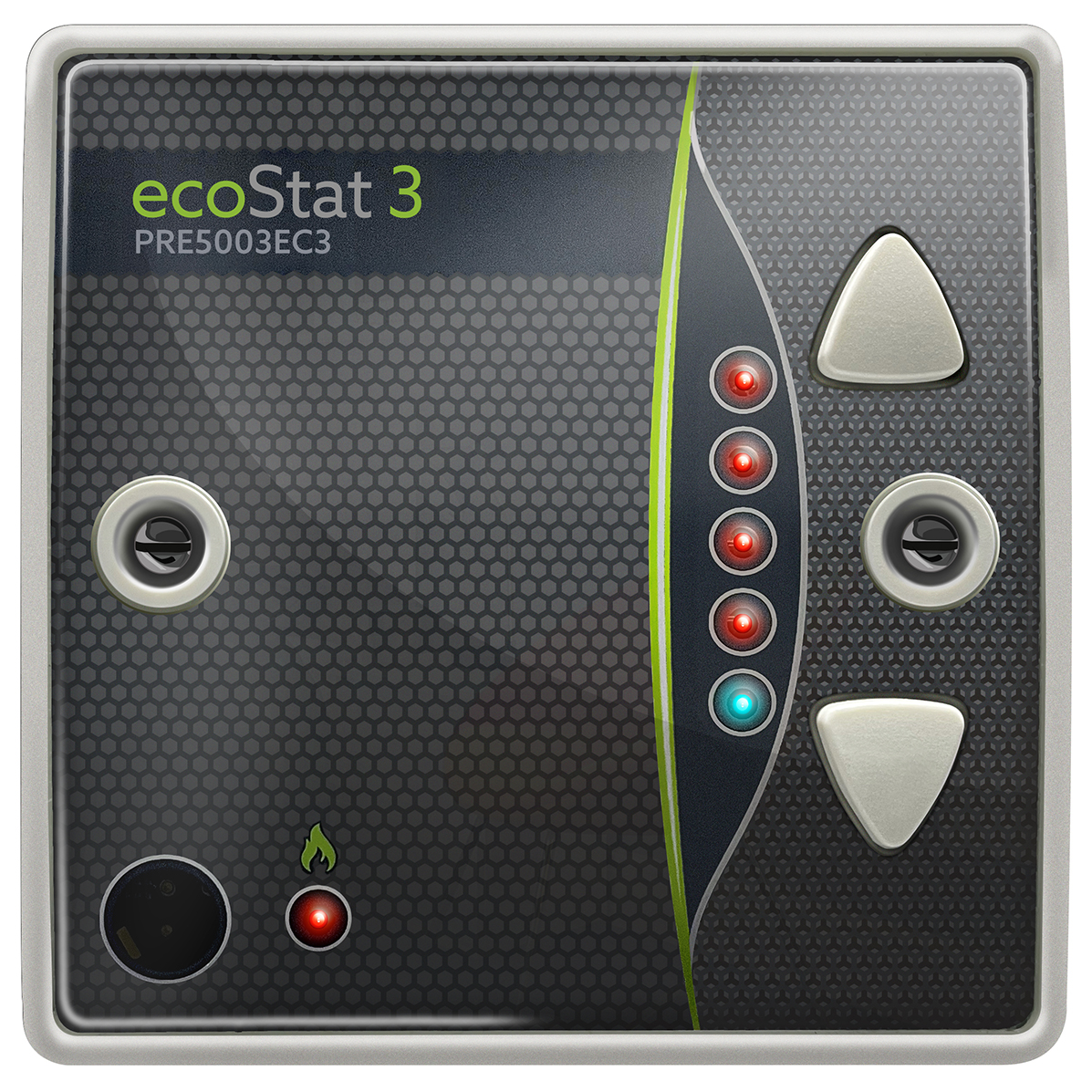
With the ongoing energy crisis and costs still high, there has been a growing demand by providers of student accommodation, to manage heating more effectively.
Too often in HMOs, the complexity of thermostat operation means the ‘constant mode’ is permanently engaged. As many controls are easily tampered with, ‘maximum heat’ is modus operandi. Windows are opened to provide heat regulation!
Restricting tenants heating is not ethical, and legal requirements stipulate the ability of rooms to maintain temperature levels. However, heating rooms that are empty, or when windows and doors are open, is simply wasted energy.
Automating efficiency takes the onus off room occupants and assures bill-payers that energy is not used unnecessarily.

Intelligent thermostats that manage individual rooms are the cost-effective solution. A new UK designed and manufactured generation has just been launched by Prefect Controls.
Simplicity of use (just Boost and Down/Off buttons), robust design and manufacturing, and impressive energy saving has made ecoStat popular with end users and installers since its introduction 25 years ago.
ecoStat3 builds on this performance by integrating a microwave occupancy sensor, along with other technical, performance and usability enhancements.
Developed for student accommodation, ecoStat has also proved popular in HMOs, hotels, hostels, holiday lodges and caravan parks. It is designed to deal with challenging environments. The evidence - 200,000+ fitted controls, still in operation.
The principal behind ecoStat3’s energy saving is the 3-mode profile – Setback-Boost-Frost modes. This ensures occupants enjoy a comfortable environment (Setback), while giving them the capability to increase temperature (Boost), but for a pre-set time. When rooms are unoccupied or ambient temperature is equivalent to setback, heaters boilers, or wet radiators are switched off, becoming active again only if there is the possibility of material damage from damp or frost (Frost).
Settings are infinitely changeable, but a typical profile is Setback: 18°C. Boost: 23°C for 45 minutes. Frost: 12°C.
ecoStat3 is always striving to reduce heat input, while keeping rooms comfortable. This typical profile maintains 18°C. Should the occupant press to request Boost, 23°C is met for 45 minutes. When Boost time elapses Setback re-engages, room temperature returns to 18°C. Should the occupant leave during Boost time, Setback re-engages. If windows are opened, heat input is reduced.
When vacant for longer periods, the heater turns off, and the control enters Frost mode.
Heating controlled by ecoStat delivers average savings of 20-30%. These savings are not made by restricting tenants access to heat - it is energy that would have heated empty rooms, or worse still, escaped through open windows.
Thermostats cannot be tampered with as the occupant has no access to programming. All parameters are set by authorised personnel using a dedicated infrared handset.
The all-new programming handset has been redesigned for ecoStat3 but has backwards compatibility with previous ecoStat ranges. The user interface is intuitive and the handset ergonomic. Profiles input on the handset, are then pointed and ‘sent’ to ecoStat3. For convenience, the handset features NFC (Near Field Communication) where simply holding it close to the control updates parameters.
The two new models operate and perform in the same way, the only difference being the integration of a microwave occupancy sensor, affording greater savings.
Reducing waste without compromising comfort must be the sensible approach to reducing energy costs.

